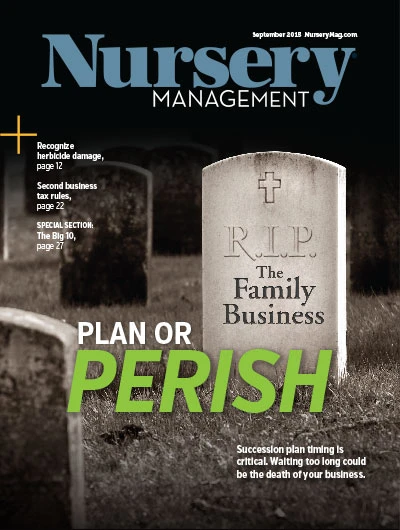 Recently, I was perusing GrowIt!, which is a free gardening app on your smart phone. In the simplest terms, it’s a way for gardeners of any skill level to share photos from their garden along with suggestion to their fellow plant lovers to either 1) Leave it, 2) Like it or 3) Grow it! You can also leave comments on the photo. Quite often the homeowner who posts a plant picture asks for help to identify it.
Recently, I was perusing GrowIt!, which is a free gardening app on your smart phone. In the simplest terms, it’s a way for gardeners of any skill level to share photos from their garden along with suggestion to their fellow plant lovers to either 1) Leave it, 2) Like it or 3) Grow it! You can also leave comments on the photo. Quite often the homeowner who posts a plant picture asks for help to identify it.
The app is locally focused, providing connections within a 75-mile radius, so you’re dealing with gardeners in your own area. A garden center or a local wholesale nursery could join and become the expert regarding which plants work well in their geographic location.
It is an interesting way to see what people have in their yard, what they are saying and the questions they have about their plants. I mostly take time to comment, in particular, on pictures with a “Help Identify” notice.
Someone posted a photo of a mandevilla and asked for ID help. The first person said it was a clematis. The next person guessed hibiscus possibly and the third got it correct. But it was the next post that caught my attention. The person said, “It’s a Mandevilla Diplodinia. I have 15 years’ experience as a retail garden center sales person, and it’s my family biz so…I’m pretty sure I’m right. And if you can’t tell the difference between an annual tropical plant and a perennial vine please don’t guess.” One of the people who “guessed” said he’ll never comment again. As for me, I was completely dumbfounded by that comment. Luckily, I (and others) made posts encouraging all to keep trying and learning.
It got me to reflect on working in my family’s retail store. On more occasions than I’d like to admit, if someone brought in a dead plant and it was obvious it had not been watered, or they killed it due to something we viewed as easy, while we didn’t outright say, “How dumb are you,” we likely implied it in not so many words or via our body language. I hate to admit we probably weren’t much better than the IGC guy on the Grow It! app. All I can say is shame on me and shame on him. Is this really how we think we’re going to attract and keep new or existing customers? We need to be encouraging, and explain the why behind the answer so they can learn.
In June, I was asked to speak on Growing your Social Roots at the Coalition of American Plant Societies meeting at the Herb Society of America. One of the other presenters was Ashley Basile Oeken from Engage! Cleveland. She cited the 2015 Deloitte Millennials Survey that says millennials think that businesses need a “reset.” They are having a positive impact but also need to focus on the advancement and well-being of society. Additionally, 75 percent believe that businesses focus on their own agenda rather than society. She said it’s a myth that millennials are living off of mom and dad and are constantly on the phone – actually they are contributing members of society. They are looking for opportunities to grow and focus on a work/life balance. They want a purpose and look for organizations that are socially responsible and give back to the community.
Gardening can be a healthy part of the millennial life but only if we talk to them in a positive and encouraging way, and show the patience and willingness to teach. Therefore I think we need to ask ourselves, does our business, or parts of our business, need a reset? Whether we’re wholesale or retail, if we’re not meeting our customers’ changing demands, then we are in a heap of trouble and won’t likely be around in the future.
The least knowledgeable customer, be it retail or wholesale, can teach us valuable lessons as long as we’re open to receiving them. And it doesn’t pay to consider ourselves better than those who don’t share the same level of horticultural IQ. I can’t help but recall some of my daddy’s sage advice: “Treat others the way you want to be treated.” A good golden rule to live and work by.
Maria Zampini is president of Upshoot LLC and Director of Plant Development and Ornamental Program Manager for the HGTV HOME Plant Collection.

Explore the September 2015 Issue
Check out more from this issue and find your next story to read.
Latest from Produce Grower
- After a thorny 2024, the CEA industry looks ahead to 2025
- CEA HERB Part 1: Best practices for producing culinary herbs in controlled environments
- Jim Jones, FDA deputy commissioner for human foods, resigns over mass staff cuts
- Orbia's precision agriculture business Netafim releases Hybrid Dripline system
- Ledgnd opens second location, adds new functionalities to MyLedgnd software portal
- This fast and agile robotic insect could someday aid in mechanical pollination
- Hydrofarm joins GLASE as premium industry member
- Food safety leaders unite for LinkedIn live event on effective communication in crisis





